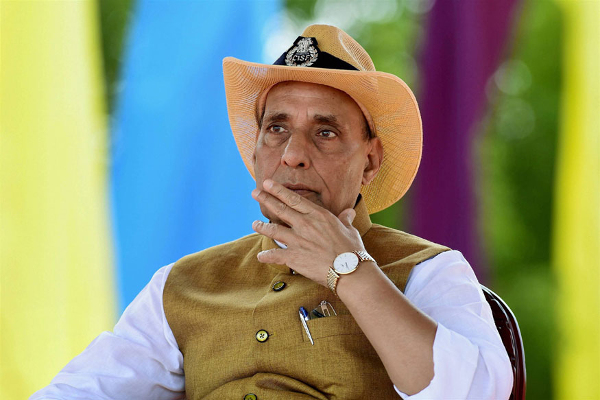NEW DELHI : Defence minister Rajnath Singh on Thursday eased certain export restrictions for companies wanting to sell components to select countries including Belgium, France, Germany, Japan, South Africa, Spain, Sweden, UK and the US in a bid to achieve India’s target of reaching $26 billion in defence exports.
A statement from the defence ministry said Singh approved the issuance of two open general export licences (OGELs) for the “export of certain parts and components and intra-company transfer of technology to select countries.” The OGEL is a one-time export licence to be granted to a company for a specific period – ie two years initially.
“It will give a boost to defence exports and enhance ease of doing business. The application for grant of OGEL will be considered by Department of Defence Production (DPP) on a case-to-case basis,” the statement said.
The move by the ministry follows a demand from Indian exporters, it said. “The countries allowed under the OGELs are: Belgium, France, Germany, Japan, South Africa, Spain, Sweden, UK, USA, Canada, Italy, Poland and Mexico.”
“The items permitted (for export) under OGEL includes components of ammunition and fuse setting device without energetic and explosive material, firing control and related alerting and warning equipment and related systems and body protective items,” the statement said. “Complete aircraft or complete unmanned aerial vehicles (UAVs) and any components specially designed or modified for UAVs are excluded under this licence,” it said.
“The transfer of technology to the countries is subject to the condition that the export is an intra-company transfer from an Indian subsidiary (applicant exporter) to its foreign parent company and/or to subsidiaries of the foreign parent company.
The OGEL is a one-time export licence to be granted to a company for a specific period (two years initially).
A net importer of arms, India has been looking to scale up domestic defence manufacturing under the ‘Make in India’ programme, attracting foreign investment into the country as well as boosting production of sophisticated hardware at home. The defence ministry is also looking at engaging the Indian private sector to produce armaments indigenously with departments like the Defence Research and Development Organisation signing licensing agreements for Transfer of Technology (ToT) with companies including startups of late.
According to the defence ministry statement, “India has made significant strides in improving its defence exports. These have grown seven-fold over the last two years and reached to Rs10,500 crore in 2018-19.”
Source:LM
Image Courtesy:News18
You may also like
-
IAF Aircraft Set Course For Exercise Eastern Bridge VII At Oman
-
IAF Set To Host The Indian Defence Aviation Exposition-II At Jodhpur
-
Defence Secretary to co-chair 5th India-Philippines Joint Defence Cooperation Committee meeting in Manila
-
Simultaneous Launch Of ‘malpe And Mulki’, Fourth And Fifth Ships Of Asw Swc (Csl) Project
-
Aatmanirbharta in Defence: MoD signs Contract with HAL for 240 AL-31FP Aero Engines for Su-30MKI Aircraft
